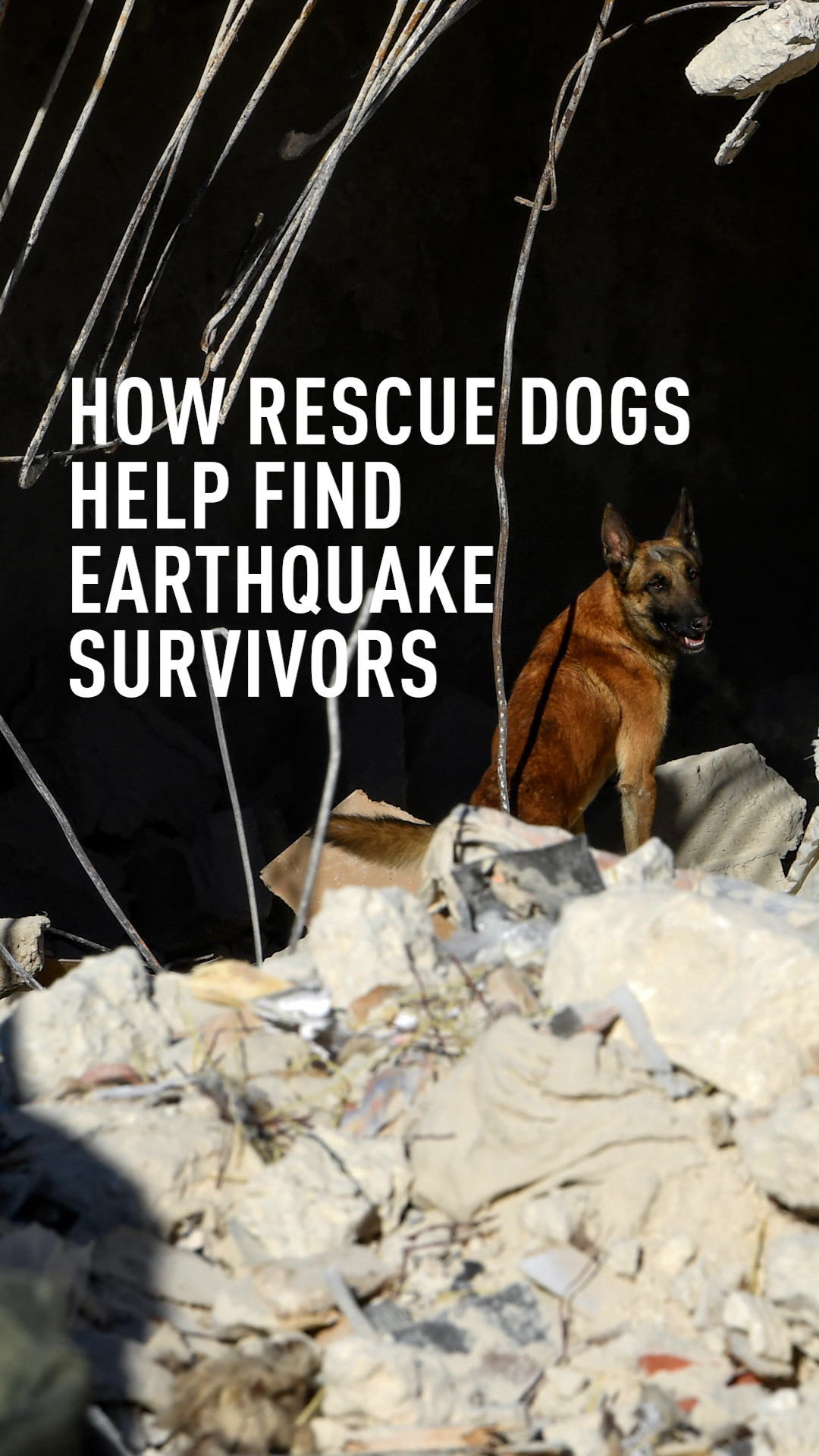01:03

Miraculous rescues have been performed in Türkiye and Syria, after last week's devastating earthquakes razed buildings and buried untold numbers of people under piles of rubble.
Many emergency teams have been aided by rescue dogs, who carefully scrabble through the debris to search for signs of life.
But how do they operate in the aftermath of Türkiye's worst natural disaster in more than a century?
"So when we arrive at the rubble site, the commander will first do a recce of the security and safety situation," says Markus Bock, a spokesman for deployment in the International Search and Rescue Dog Organisation (IRO), which deployed 84 people and six dogs to Türkiye's historic city of Antakya.
Once the crew determines it's safe to operate, the dogs spring into action, and start trying to sniff out survivors. Bock says they have been trained to bark to their handlers and stay in place, if they detect someone's scent.
The next step involves using detection equipment – like cameras, thermal imaging or audio devices – to pinpoint the exact location of the potential survivor.
"We get a clear picture about the constitution of the victim and the position of the victim," says Bock. "And afterwards the whole squad, more or less, is in action to move the rubble."
Doctors and paramedics then help stabilize the trapped survivor before bringing them out.
Remarkable successes – and tough choices
The IRO has had remarkable success in Türkiye. Its team has managed to help find and rescue nine people in Antakya.
But the team members also had to make some tough choices.
"If you can't really locate the victim and say 'Okay, I need 12 hours, 14 hours, 15 hours, 20 hours to get access to the victim' – and then in the building right opposite or right beside there are three victims where I have access within a few hours... to say 'No, we won't work on that (earlier) victim, we move to the other victim' – that's one of the most difficult decisions you have to take," says Bock.

A rescuer with a sniffer dog searches in a destroyed building in Antakya. /Hussein Malla/AP
A rescuer with a sniffer dog searches in a destroyed building in Antakya. /Hussein Malla/AP
Organizations like the IRO cannot just rush into a disaster zone.
They are mostly brought in through official channels, co-ordinating with authorities in the European Union and United Nations. Bock says co-operation with the governments and rescue agencies of affected countries is key.
"At one level, most forget it was a disaster," says Bock, who has also joined previous rescue operations in Türkiye, Iran and Sri Lanka.
"In the beginning, you know, the mayor is under the rubble. The police chief is under the rubble. The fire chief is under the rubble. So the local structures won't function at all," he says.
"But Türkiye is especially well-prepared for disasters like that. They know that they are this quake-prone country and they have the structure to build up local emergency management together with the international level."
The death toll in Türkiye now stands at 38,044, officials said on Friday. But this number is expected to shoot up given some 264,000 apartments were lost in the quake and many people are still unaccounted for.
In neighboring Syria, already shattered by more than a decade of civil war, authorities have reported more than 5,800 deaths. The toll has not changed for days.